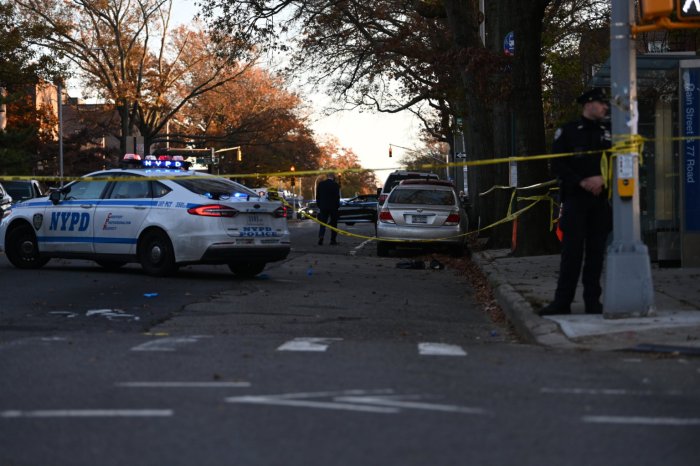By Howard Koplowitz
It has been more than 10 years since his diagnosis in April 1994. By December of the same year, he stopped driving the bus.For the first four years after his diagnosis, Hynes said his motor skills were functioning normally and he was still able to drive a car and go on vacations with his family.In 1995, he enrolled at the CUNY School of Law from which he graduated in May 1998. Toward the end of his tenure at the school, Hynes' condition worsened.Instead of walking, Hynes said he would crawl on his hands and knees to get to his classes because walking was too painful and he was unable to get a wheelchair.The Ridgewood resident also had problems with his medication.”It took two hours to kick in, but it only worked for five minutes,” he said.Hynes was in the hospital for three weeks in 1999 to determine the cause of the medication's ineffectiveness, and doctors told him the dosage was too high. Following his hospital stay, Hynes began a dosage that was one-fifth of what he had been taking.His walking did not improve, however, and Hynes was confined to a wheelchair and needed a home health aide. Over time, he began to build up a tolerance toward his medication, which rendered it ineffective.Hynes was once asked to leave a restaurant because he was disturbing other customers with the involuntary movements that are brought on by Parkinson's, . He said that regularly people would ask his aide questions about him, as if he were incapable of speaking for himself. “They don't understand Parkinson's,” he said of those who are ignorant about his disease.Knowing his condition would only get worse with time, Hynes thought about surgery, but his original doctor advised against it because Hynes was relatively young and had just started law school. But he was still contemplating having the operation because his only alternative would be to live in a nursing home.Last year Hynes underwent an operation that implanted electrodes in his brain connected by wires to two batteries in his chest.He was told by a second doctor that the operation could make him better off, worse, or dead. “I didn't know what to expect,” Hynes said.The operation was more than a success: it transformed the way Hynes lives.He was able to throw out his wheelchair and walk two miles every day. He no longer needed his home health aide. Last week he participated in a 2.5-mile Parkinson's Unity Walk to raise money for Parkinson's research in Central Park.”It's a miracle,” Hynes said of what he has been able to accomplish after the procedure.”When I found out he was walking in the walkathon, I was completely blown away,” said Fred Rooney, who knows Hynes through CUNY Law School.Although Hynes was never able to take the bar exam to become a lawyer, with his new lease on life, he has created the Workers Alliance of New York City, which informs families of slain taxi drivers and construction workers of their right to file workers' compensation claims.The cause is close to his heart because Hynes was once a taxi driver in San Francisco and Manhattan, and has had a few attempts on his life by passengers.Reach reporter Howard Koplowitz by e-mail at news@timesledger.com or by phone at 718-229-0300, Ext. 173





























